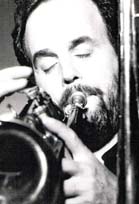SHELDON BERMONT
Over the years, in 6 major cities, and on the road, this dedicated performer has also played trombone in full 12-piece Salsa orchestras, written over 250 songs covering everything from blues, to country, to soul, and back to jazz, recorded as a vocalist, horn-player, and as a percussionist, and played trombone as a side man in nightclubs in countless R&B and Soul bands. He freely admits to blues being his first and greatest love but some of his best writing has strayed pretty far from the 1-4-5.

His first professional experiences were playing trombone in the active nightclub scene of Washington D.C. in the late 60’s. At that time he was the youngest member of any horn section and learned the ropes, playing the urban soul and Motown radio hits. A new song would be aired on the radio on a Monday and the 8 or 10-piece band would be playing it, fully arranged and rehearsed, by that weekend.
Coke Escovedo, world-renowned percussionist, chose him to head up his horn section in several band concepts. That was followed by a little road work with Pete Escovedo’s Azteca and a brief stint with Malo, George Santana’s group. He then went back to his R&B roots, performing with the disco/soul hit-maker Sylvester. In 1977 Lenny Williams, the former lead singer of Tower of Power invited him to be part of his new band for an extensive touring schedule, hitting major cities in the U.S. and in England.
Throughout the 80’s, Bermont continued to write and soon had a catalog of hundreds of blues, country, soul, and pop tunes. He took that collection to Nashville in 1990. He pitched country tunes during the day and dove into Music City’s Blues scene at night. He sang and played horns with Tulsa Blues master, Jr. Markham, working the club scene, bringing the blues into venues previously “off-limits” to the blues sound. It was then that he put together his quartet, The Blues Alliance, for the express purpose of showcasing the tunes he had written in a format that he says was “extremely different from any blues Nashville was getting exposed to at the time”.
He describes his blues interpretation this way: “I never wanted my music to be a competition for who could play the most notes. I just want to tell a story and have the groove be raw and undeniable.”